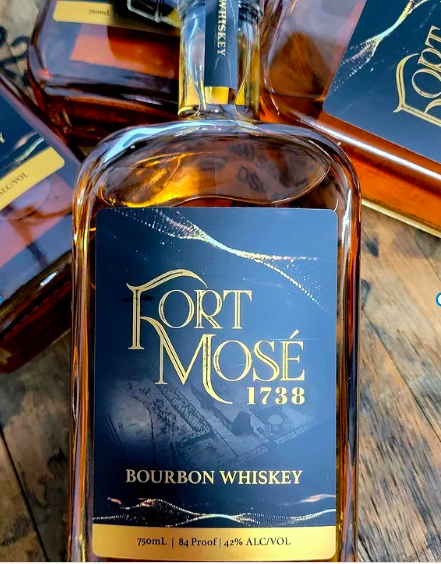A Black-owned distillery has announced the release of a new bourbon whiskey brand named after the first North American settlement that allowed people of African descent to legally live free.

Victor George Spirits, the adult beverage company that partnered with rapper Tramar “Flo Rida” Dillard as co-owner of its VG Vodka, has dedicated its new venture to combining history with its luxury brand.
In a May 27 press release VGS announced the expansion of its portfolio to include a new bourbon, Fort Mosé 1738.
The brand is owned by Victor George Harvey. “When I first got into this industry in 2007 there were very few if any, Black people with their own brands,” Harvey said in a prepared statement.
The whiskey is aged for four years and is described as having a smooth taste and combines corn, rye and malted barley to create the blend. Harvey posted on social about the drink after grabbing the first four bottles ever created. In a later post, he asked, “Do you know history?”

The history surrounding the product is fascinating, as the spirits’ namesake Fort Mosé is documented as the first municipality, in what is now known as the United States, to sanction Blacks to live without bondage legally in 1738, more than 125 years before slavery was abolished.
Located in Florida, two miles north of St. Augustine, the town was started by some of the earliest creators of the “underground railroad” and included more than 100 freedom-seeking Africans in an area protected by the Spanish government.
The community thrived for decades, having its own governance structure and militia, but in 1763 when the English obtained rule over “all of La Florida” the citizens faced being enslaved and fled to Cuba to maintain their manumission.
Read full story at Finurah here.


